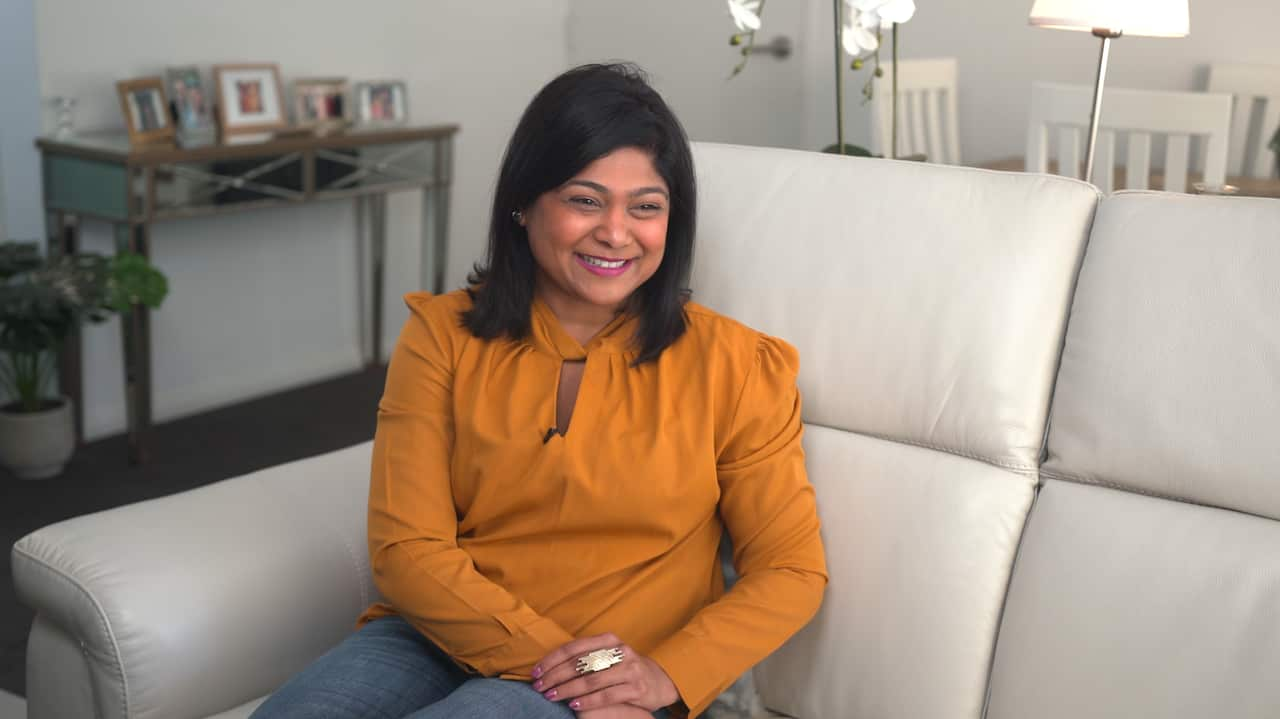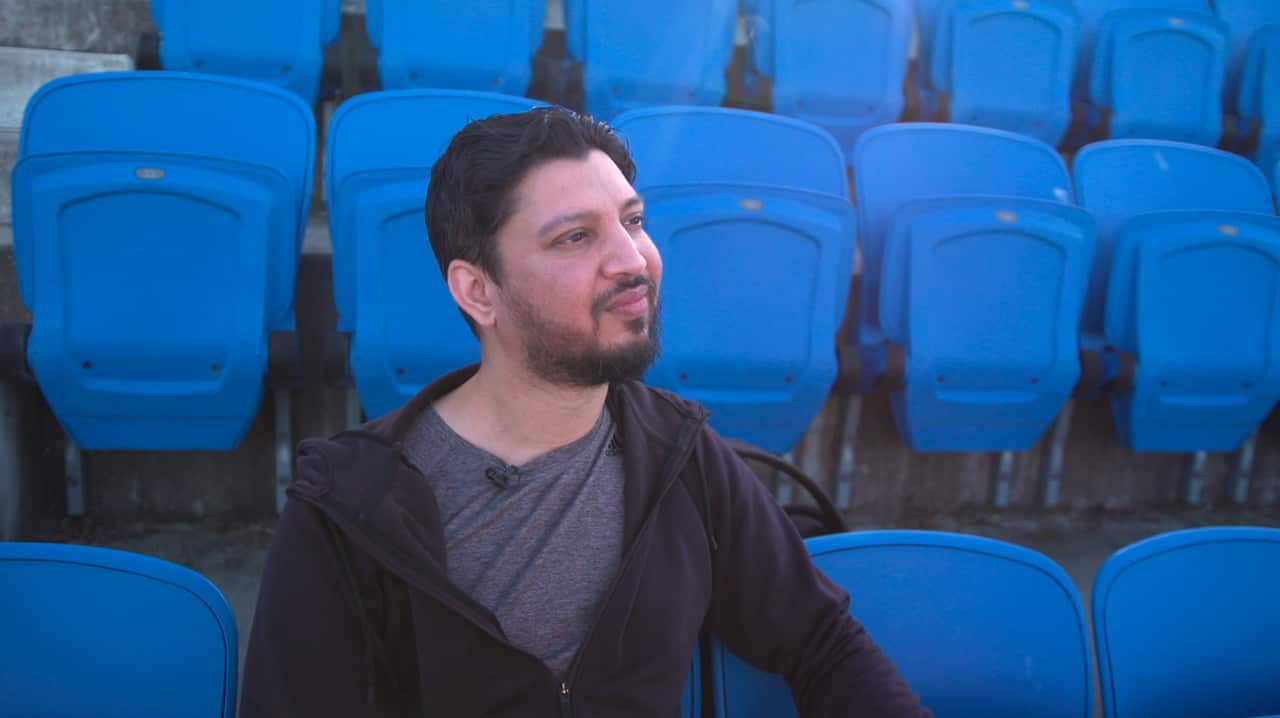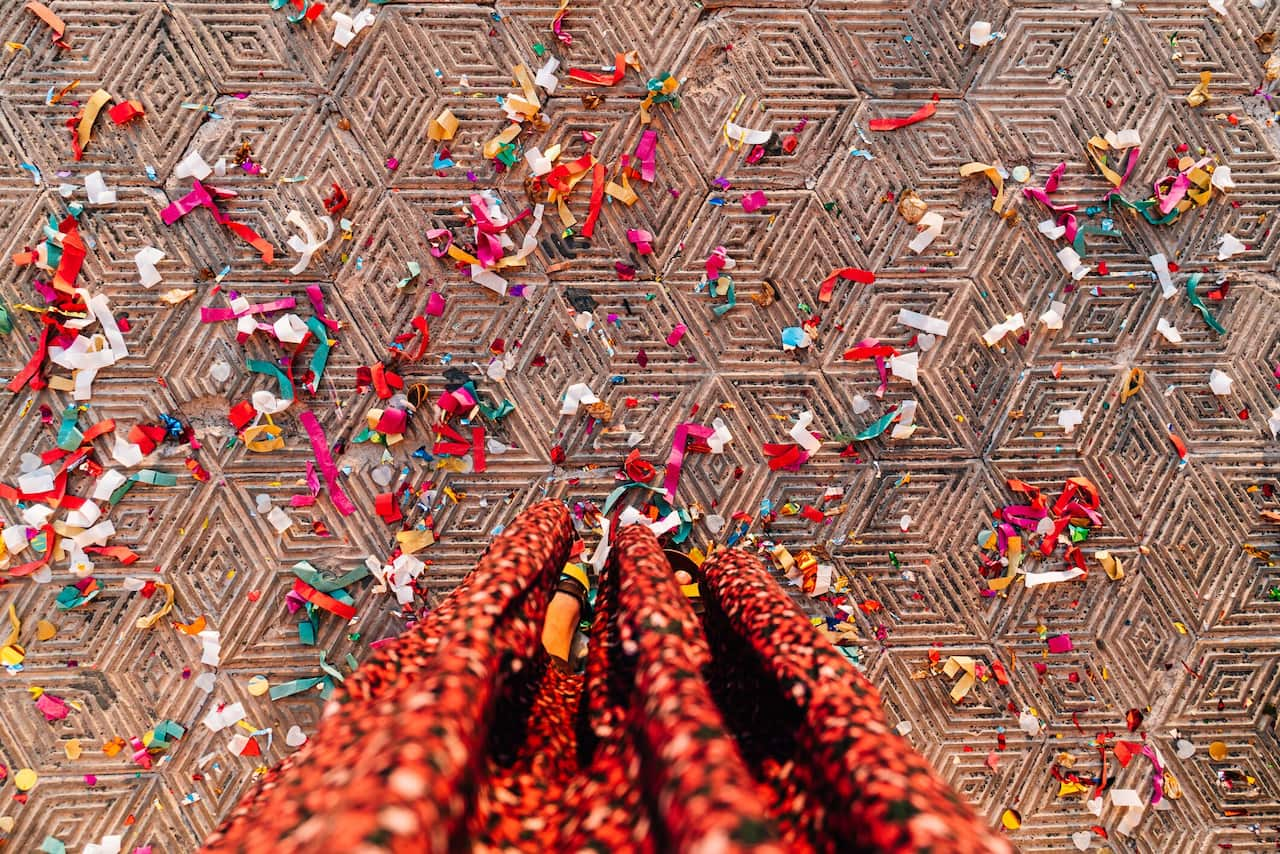Divorced at 32 is not the happily ever after Aditi Shah imagined when she got married five years ago.
“My marriage wasn't a traditional Indian marriage,” Aditi says. “Mine was a love marriage.”
To the Indian diaspora, a ‘love marriage’ is one where the bride and groom tie the knot after finding each other on their own. While a ‘marriage’ - without the prefix - often means it was arranged through family, friends and/or a matchmaker on the basis that love will grow from their compatibility on paper.
After Aditi’s hopes for love were dashed by her failed marriage, she softened to the idea of using a matchmaking service a friend told her about.
“Once you finish university, it's really hard to connect with people outside of work. Most of my friends are married at this stage, and the dating pool is really small,” Aditi says. Preeti Kothari, 52, the founder of Soulmate Matrimonial, says like Aditi, people tend to approach her in their 30s when they give up on finding love themselves.
Preeti Kothari, 52, the founder of Soulmate Matrimonial, says like Aditi, people tend to approach her in their 30s when they give up on finding love themselves.

Aditi is using a matchmaking service after her divorce. Source: The Feed
Since launching in 2018, Preeti has registered 250 clients, taken one couple to the altar and introduced four couples that are “looking promising”.
Her service matches its clients based on the kind of ‘biodata’ featured on dating apps like Tinder, Bumble and Hinge, such as a person’s photo, age, education and profession.
While Aditya Mehra, 38, still uses dating apps, he’s turned to Preeti for help, frustrated by how difficult it is to know how serious others are or what they’re looking for.
“A lot of the girls don't fill up their profiles, it's just got photographs, not even a word about anything else so it’s very tough,” he says.
The price of love
The modern-day matchmaker personally connects people who are looking to get married without obliging them to do so.
Preeti introduces people she believes are compatible and guides them through their interactions in the hope they’ll form a relationship, fall in love and get married. If the couple doesn’t work out, it’s back to the drawing board until they find ‘the one’ at an annual fee of $100 for a basic membership.
If the couple doesn’t work out, it’s back to the drawing board until they find ‘the one’ at an annual fee of $100 for a basic membership.

Aditya Mehra Source: The Feed
Meena Chavan, 53, met her husband through a matchmaker in India in the 80s. Back then, she says, matchmaking services weren’t commercial.
“It was the senior citizens or the housewives. If people found their matches through a particular service provider, then they would give them a gift, say $500 or some clothing and a box of chocolates,” Meena says.
The role of India’s caste system
What hasn’t seemed to have changed however is the prevalence of the caste criteria.
“People are still believing in caste here. Their priority is to find a person in their own caste,” Preeti says.
The Indian caste system divides Hindu people into four categories; Brahmins (priests, academics), Kshatriyas (royals, warriors), Vaishyas (merchants, landowners) and the Shudras (commoners).
Meena and her husband both belong to “the royal and warrior class”.
“We speak the same language as well so it was easier to understand where we came from,” Meena says. When Meena got married, most of her friends had arranged marriages. The ones that opted for love are no longer with their partners.
When Meena got married, most of her friends had arranged marriages. The ones that opted for love are no longer with their partners.

Since launching in 2018, matchmaker, Preeti, has registered 250 clients. Source: Getty Images
“In regards to love, I knew that it would happen over time when I got to know him, so love was not the most important factor then,” she says.
Although love is an important factor to the majority of Preeti’s clients, and it’s one Preeti understands herself.
“Mine was a love marriage,” Preeti says. “My family did try for an arranged marriage for me but whoever I used to meet would tell me that I’d have to leave my job.”
Preeti was working at a bank at the time and wasn’t planning on giving up her career or financial independence to become a housewife.
Despite the fact that her now-husband didn’t belong to her caste, let alone religion, they fell in love after completing a computer training class together.
“He's Zoroastrian; a member of the Parsi community, non-vegetarian and liberal. Whereas my community is Hindu, strictly vegetarian, and conservative,” Preeti says.
The couple has two kitchens in their home; a central kitchen belonging to Preeti and a secondary one her husband calls “the butler’s kitchen” so he can cook non-vegetarian meals in separate cookware.
“And that's making me happy because I am following my religion, he's following his own religion,” Preeti says.
Because of her love story, Preeti advises her clients to look for partners outside their own caste. Her philosophy is that a good match will be committed to understanding each other despite their differences.
“Everyone has some plus and minus points, positive and negative things that you have to accept. It's not going to happen that you will get 100 percent the right person in life.”
Share
Through award winning storytelling, The Feed continues to break new ground with its compelling mix of current affairs, comedy, profiles and investigations. See Different. Know Better. Laugh Harder. Read more about The Feed
Have a story or comment? Contact Us

